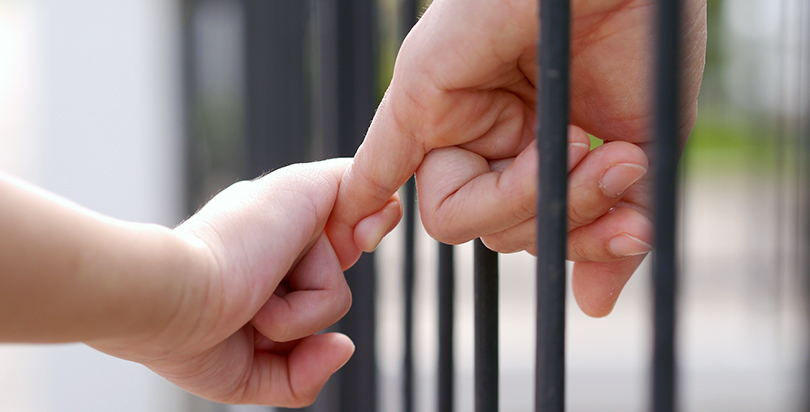The majority of Americans now say that drug offenders are taking up too much space in the federal prison system. There is also overwhelming support in the country to curb the use of mandatory minimum sentences by giving judges more flexibility. And while Congress has yet to take legislative action to address these issues, President Barack Obama has commuted a record number of sentences.
While much has been said about how less jail time would impact the lives of the incarcerated, very little has been said about how it might affect their children.
Enter the Economic Policy Institute.
In a report released on Thursday, two researchers from the liberal-leaning think tank analyze existing data to capture the extent to which American children experience having a parent behind bars and how that affects their education.
And while the whole report is sobering, there are three essential findings that every American should know.
The United States has the highest incarceration rate in the world: 700 prisoners for every 100,000 residents. That next highest rates come from the former Soviet republic of Turkmenistan, El Salvador and Cuba. The brunt of this phenomenon has fallen on minorities. By the age of 14, a quarter of black children will have experienced a parent being imprisoned for some period of time, compared with just 4 percent of white children. Each school day, about 10 percent of black children have a parent who is in jail or prison, which is more than four times the share in 1980.
Only one third of imprisoned fathers are behind bars because of a violent crime. Another third have been convicted of drug-related crimes, while the remainder have committed property crimes or technical violations, according to the report.
Even after controlling for factors like race, poverty, IQ and the quality of the home environment, the researchers found that the children of incarcerated parents were still more likely to drop out of school than the children of non-incarcerated parents. In fact, black boys between the ages of 11 and 14 are 25 percent more likely to drop out of a school if they have a mother behind bars, and they are 55 percent more likely to drop out because they themselves have been incarcerated. Likewise, children of locked-up fathers complete fewer years of school, which the researchers attribute to the incarceration itself because they have controlled for other social and demographic characteristics.
Kids with a parent who has been jailed are more likely to have learning disabilities. Children with an incarcerated parent are 48 percent more likely to have attention deficit hyperactivity disorder (ADHD) than children with non-incarcerated parents, and they are 23 percent more likely to suffer from developmental delays, the report says. If they have an incarcerated father, they are 72 percent more likely to suffer from PTSD and 51 percent more likely to have anxiety. Kids with incarcerated fathers are also more likely to experience high cholesterol, asthma and migraines. Girls with parents who have been in jail are more likely to battle their weight as adults.
The researchers speculate that the negative outcomes associated with having a parent in jail are likely the result of the lost income the family experiences and the emotional and psychological stress incarceration imposes on the family. The report challenges educators to “add their voices” to the war against mass incarceration.
“Because of its effects on children, the mass incarceration of African American men contributes to the relatively low average performance of African American children,” the researchers wrote. “Ending the war on drugs and the resulting mass incarceration of fathers of schoolchildren should be a primary focus of school reform.”
Read the whole report here.
Get stories like these delivered straight to your inbox. Sign up for The 74 Newsletter


;)
